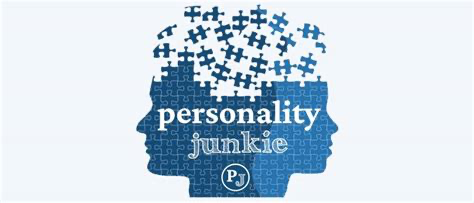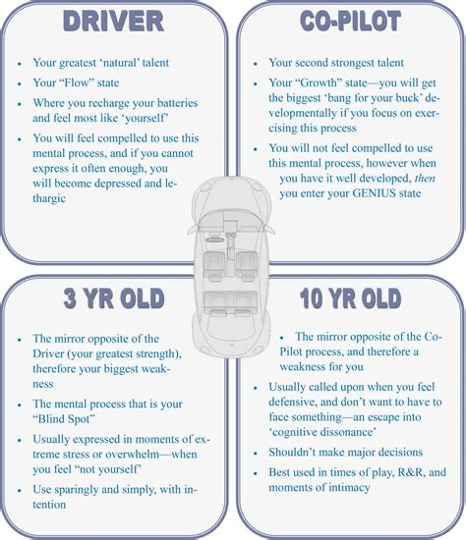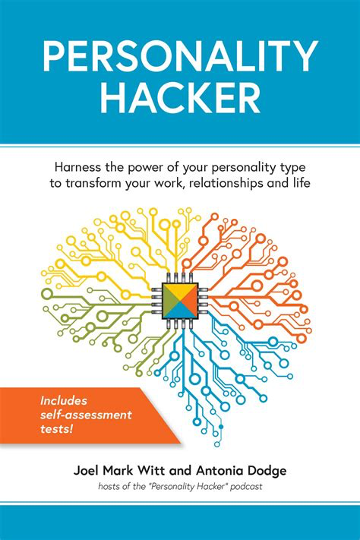יֵצֶר
Our gifts, strengths, and anointing are given by YHWH without repentance, but they were always meant to be used in service to others through mature character, exemplified through the life of Yeshua haMashiach.
How should we prepare our mind?
There are many ways to figure out who YHWH made us to be and how we fit into community. Unfortunately, much of the world’s info on this topic either reduces or elevates mankind to a place that they do not belong – either he or she is a former animal or other non-intelligent organism or is a god, who needs only the right guidance to become enlightened to godhood. However, I have found that there are some useful tools which can be used in a limited fashion, still subject to what we read in the Bible.
This test is my favorite, based on the popular MBTI test. However, the way the results are often used is close to useless and can actually encourage immaturity instead of maturity in community.
Instead, understanding your functioning within the general category of type can, in turn, help you understand a limited aspect of you as a human being: how you prefer to learn and communicate with others so that you have words to use to explain to others when there is misunderstanding. But these results should not be used to excuse immaturity or forestall growth – there is a wide variability even within a single type due to this factor. With this in mind, see the following diagrams.
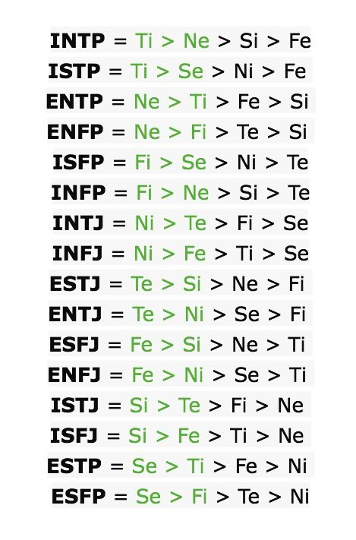
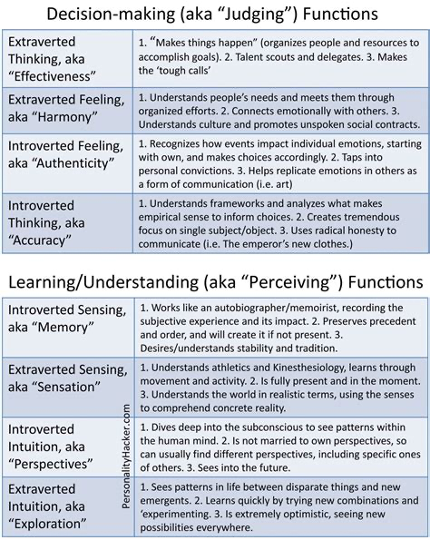
Plugging in these functions of type into the car model can also help you understand when immaturity is causing you problems and how to improve. This is explained in much more detail in Personality Hacker’s book below, while also including diagrams, descriptions, and suggestions for growth for each type.
Similarly, finding your strengths can help you figure out more of the positive aspects of the unique person you are, even if these strengths show up differently in what you do, compared to others with the same strength. But remember: sometimes YHWH refines us through what we are NOT good at and helps us thereby to hone the gifts of the Spirit. When we are able to overcome in trials that contain aspects that we know we are not good at, we know it is not of ourselves…in these, He is strong in our weaknesses. You allow the supernatural to occur in your life when you are willing to do what does not come naturally!
Moving on to another test I find useful, using the Strengthsfinder test in community can show how YHWH has built each of us to fulfill a function in His body. No function is greater than another; they are all needed. Sometimes, there are gaps because we are overly focused on one area instead of another, but this is where we support each other and not accuse each other of not doing as well as what we ourselves are good at doing. Let us value all gifts.
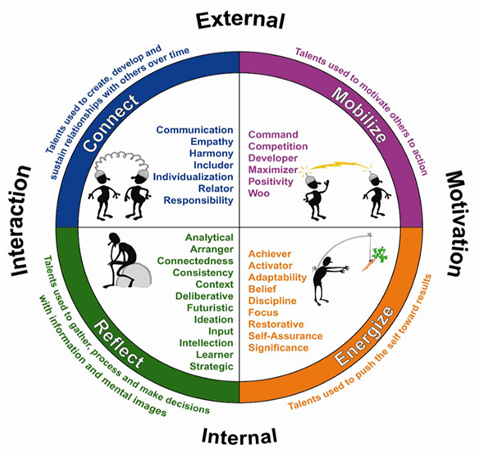
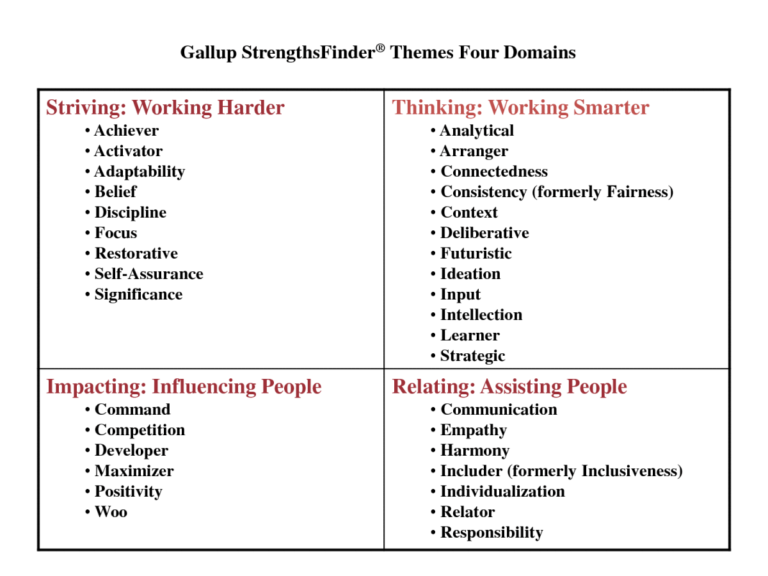
So how does understanding our unique aspects, and that of others, help us in community? For one thing, we must realize we are not bricks but unhewn stones, built up to be the Temple of YHWH.
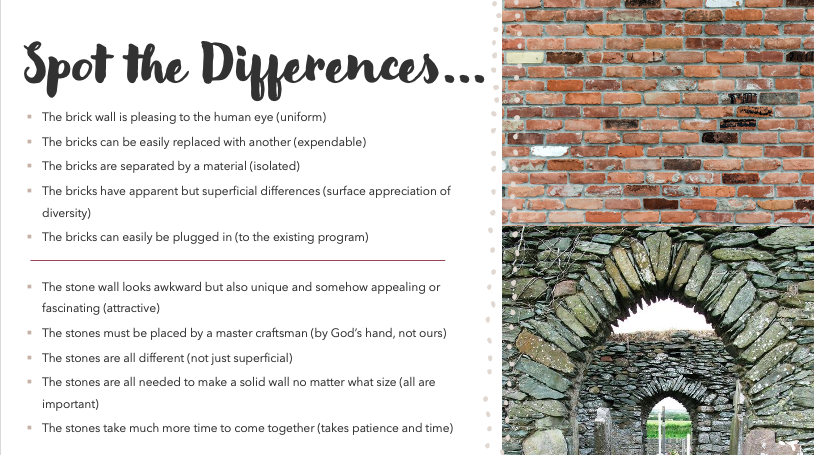
A historical example – at the Tower of Babel – of how bricks were valued even above human life is demonstrated in the book of Jasher, a book mentioned by Joshua and Samuel:
But don’t get it twisted, the bricks only had value via the means for their end! As we understand the concept of who we really are as an “unhewn stone”, we realize how we must treat ourselves and each other and how the love outlined in I Corinthians 13 must be demonstrated.
Real love demonstrated in community must not focus on or prioritize the gifts we have, but instead, it should focus on our development of maturity in loving others. This is demonstrated in the Bible with the covenant friendships between Ruth and Naomi (Ruth 1:16-17), and David and Jonathan (I Samuel 18-23).
Maturity is reflected in being real with ourselves and with others, not just “hanging out” and checking off our religious duties for the week. Nothing we (purportedly) do for YHWH is more important than what we do for each other, since Yeshua tells us that we show Him that we love Him by our service to each other.
And this love needs to be concrete and practical…
If we understand the context of when John wrote this book, we find that he wrote his gospel first, then Revelation, then 1st, 2nd, and 3rd John as encouragement to believers after what we learn from his apocalyptic writing. So let us read it, study it, and apply it! We are in that time period where love of each other will be much more important than how much we have “prepped” our physical possessions.
How can we prove we have the Holy Spirit, or the Ruach haKodesh, in our lives? By demonstrating supernatural characteristics that make us spiritually mature. In other words, something beyond human strength. This is shown in loving our stubborn brothers and sisters, and by loving our enemies, well. We do not serve our selves but put each other first.
The following video and the other videos in the playlist are helpful if it seems like your understanding of scripture is interfering with true maturity of yourself or others.
